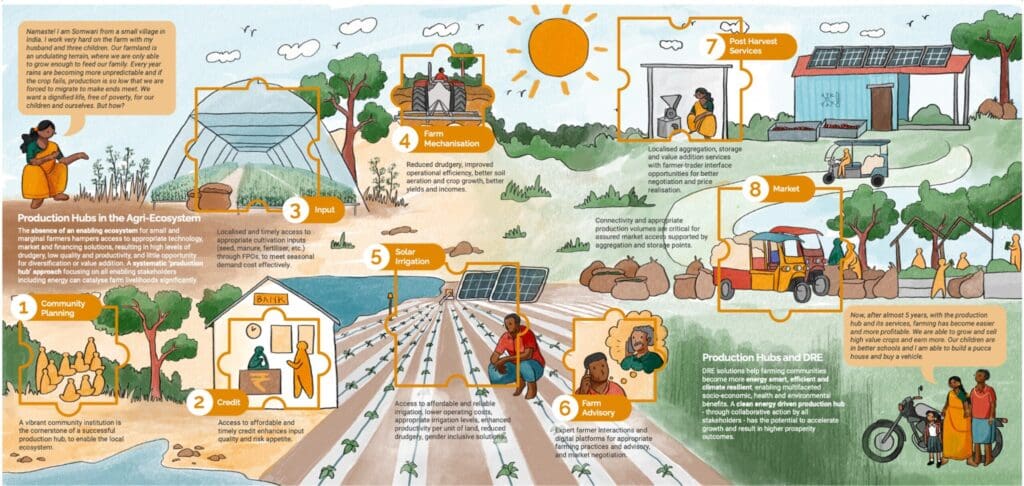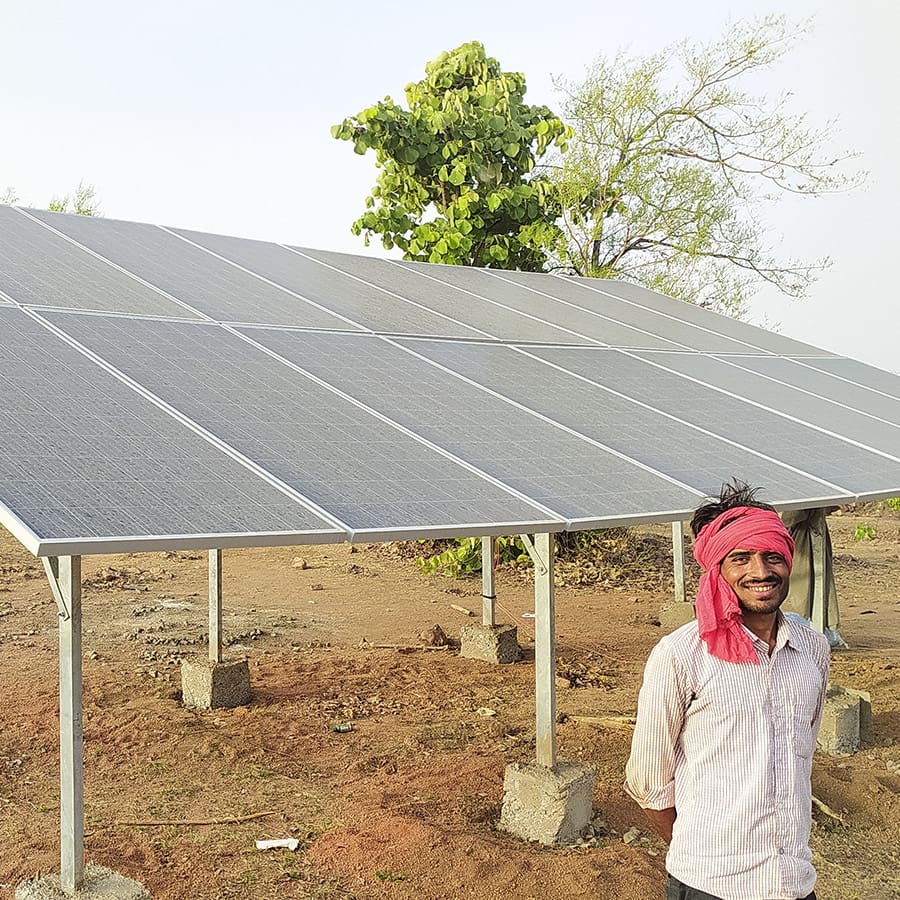Production Hubs
In India, nearly half a billion small and marginal farmers account for over 80% of the total farmer population. Most of these farmers subsist on labour-intensive farm activities over fragmented land parcels with resource inequities, climate irregularities and poor technology access. In the absence of an enabling ecosystem and market connect in their specific contexts, small and marginal farmers experience severe vulnerabilities that result in high levels of drudgery, low crop productivity and quality, poor livestock management and little opportunity for diversification or value addition.
Sustain Plus collaborates with grassroots enablers, who are systematically working on collectivising small and marginal farmers along agricultural and allied value chains to build climate-smart and clean energy-driven ‘production hubs’.
A typical production hub may be defined as a contiguous cluster of villages where various stakeholders collaborate to enable high production and productivity levels, aggregation and market access. By collectivising the efforts of small and marginal farmers and by building complementary local systems to enhance agriculture livelihoods at the pre-production, production and post-harvest stages, it is possible to meaningfully enhance production volumes and farmer incomes.
As the largest provider of livelihoods in rural India, the farm sector holds significant potential for socio-economic transformation, and technological interventions such as farm mechanisation or energy are key to unlocking this potential. Building on the long–term experience and learnings of our partners, Sustain Plus synergises with their efforts in improving agronomic practices through the integration of appropriate grassroots solutions to enhance climate resilience, productivity, efficiency and sustainability outcomes, as well as significantly reduce human drudgery and operational costs.







